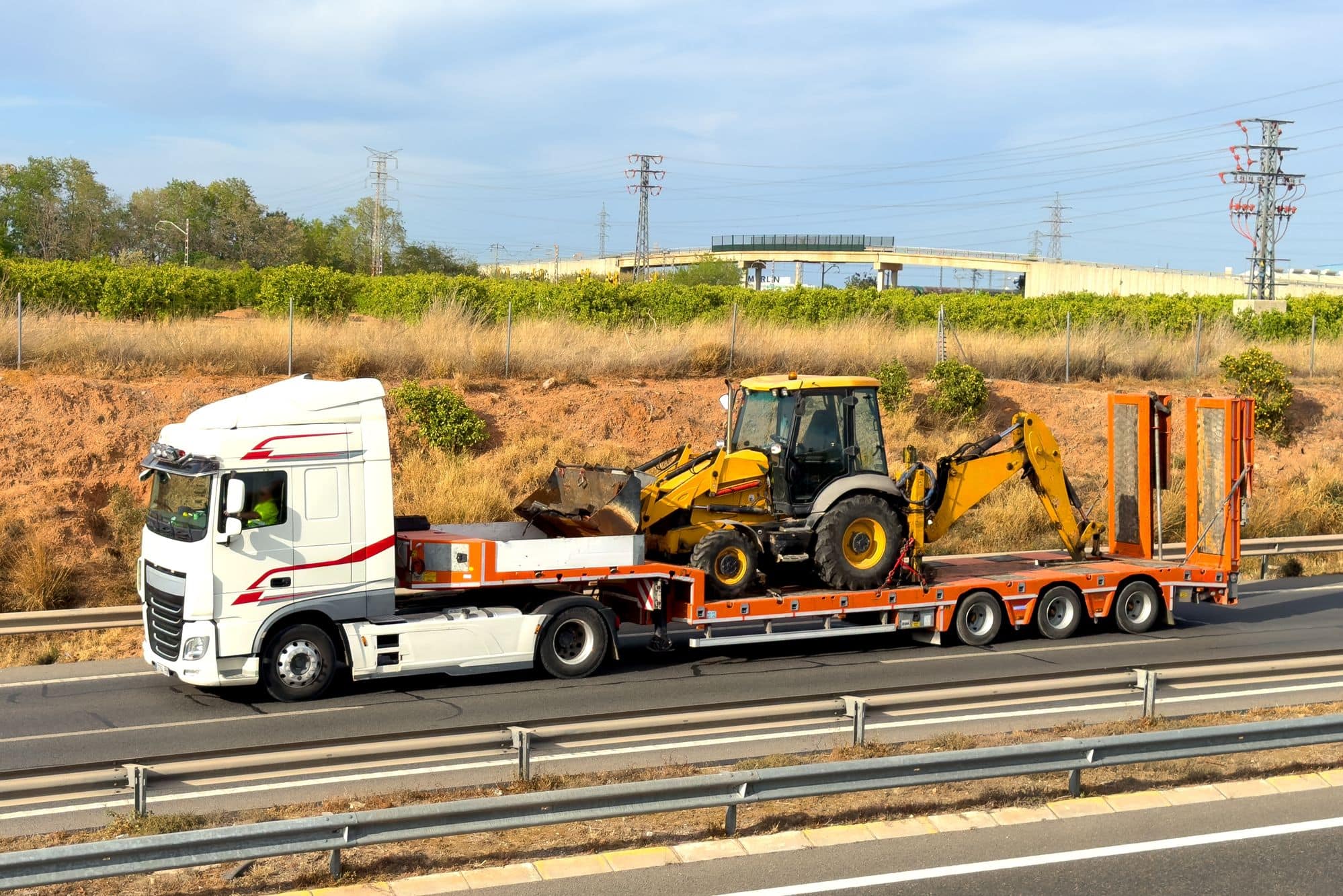
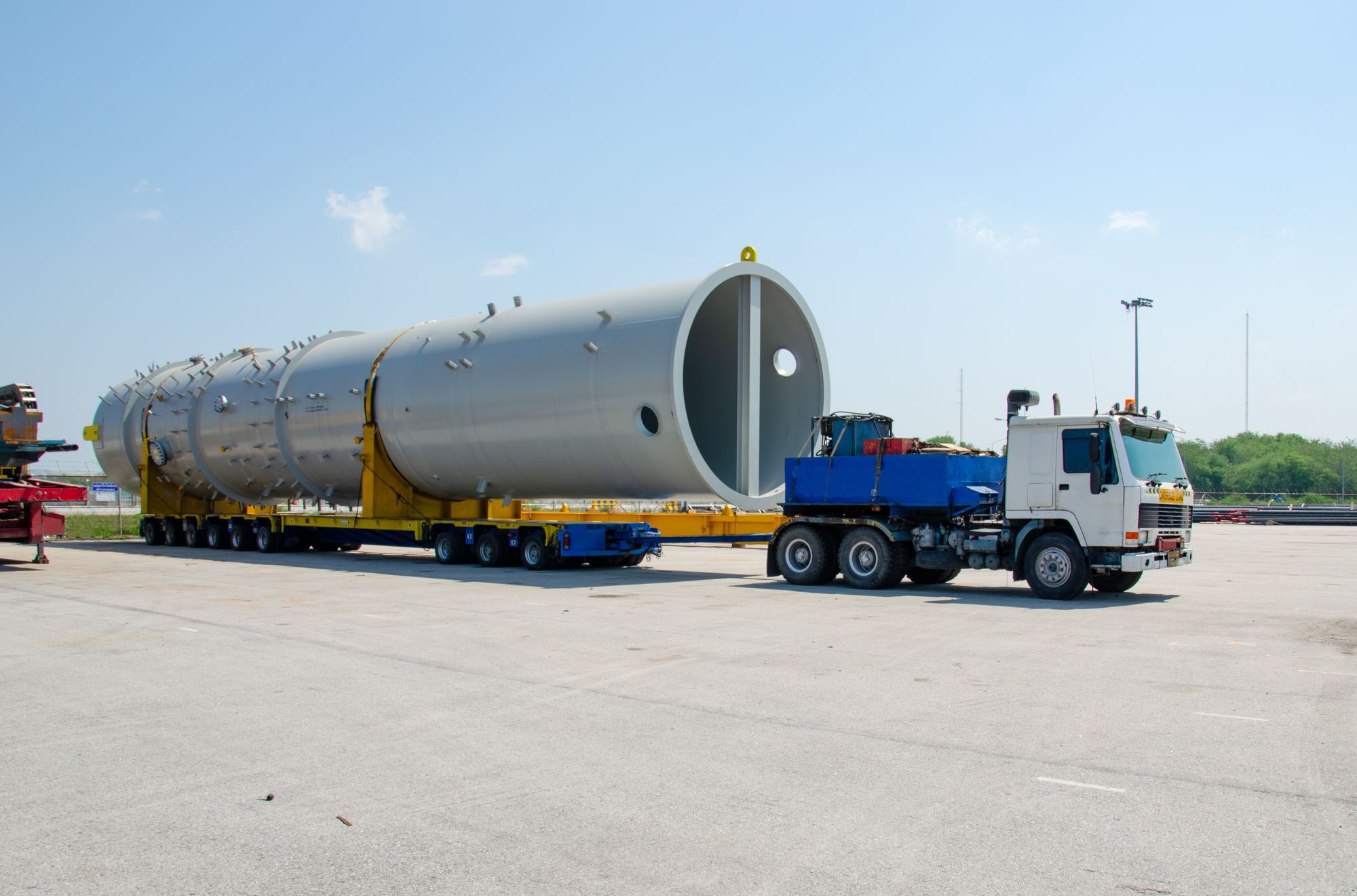
Your expensive equipment deserves better than crossed fingers and hope. When you work with a professional machinery mover in Center White Creek, your heavy equipment gets there undamaged, on schedule, and ready to work the moment it arrives.
No surprise repair bills from transport damage. No project delays because something got banged up during the move. No sleepless nights wondering if your six-figure investment is being handled by someone who actually knows what they’re doing.
You get equipment that powers up and performs the day it reaches its destination. Projects that stay on timeline because your machinery transport was handled right. The confidence that comes from working with people who’ve been moving heavy equipment in Washington County for decades, not just anyone with a trailer.
We’ve been serving Center White Creek and Washington County since 1997, evolving from logging operations to become the area’s most trusted heavy equipment mover. Josh personally oversees every machinery transport job because your investment matters too much to leave to chance or inexperienced hands.
As a family business with deep roots in the region, we understand what it means to be your equipment moving company for life, not just one job. When you call us, you’re getting decades of combined experience in heavy machinery transport and the kind of personal attention that only comes from a local, owner-operated company where reputation matters more than quick profits.
Center White Creek’s rural landscape, seasonal weather challenges, and tight-knit community demand contractors who understand both the terrain and the people. That’s exactly what you get with us – local knowledge that can’t be taught, only earned through years of successful equipment moves throughout eastern New York.
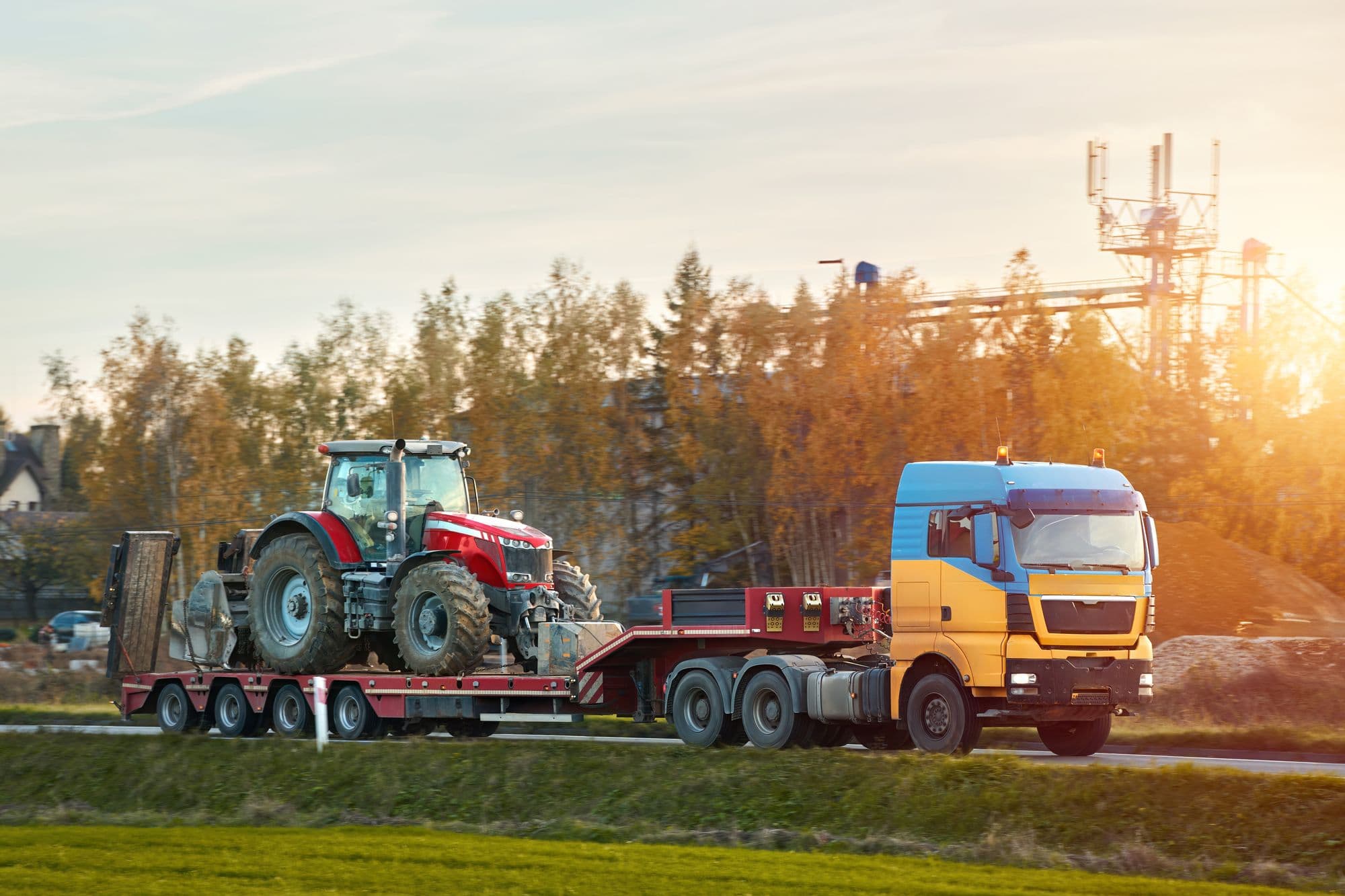
Every machinery transport project starts with understanding exactly what you’re moving, where it’s going, and what challenges might come up along the way. Josh personally evaluates your heavy equipment, maps the optimal route through Center White Creek’s rural roads, and identifies any permit requirements or special handling needs before the first piece of machinery gets touched.
Route planning considers Washington County’s unique challenges – narrow rural roads, seasonal weight restrictions, bridge clearances, and weather conditions that can affect transport safety. This isn’t guesswork; it’s professional planning based on years of moving equipment through this exact area.
On moving day, the right specialized equipment shows up with operators who know how to use it properly. Your machinery gets secured using professional-grade tie-downs and blocking, transported safely along the planned route, and positioned exactly where you need it. You stay informed throughout the entire process because communication matters as much as execution. When the job’s complete, your equipment is ready to work and your project stays on schedule.
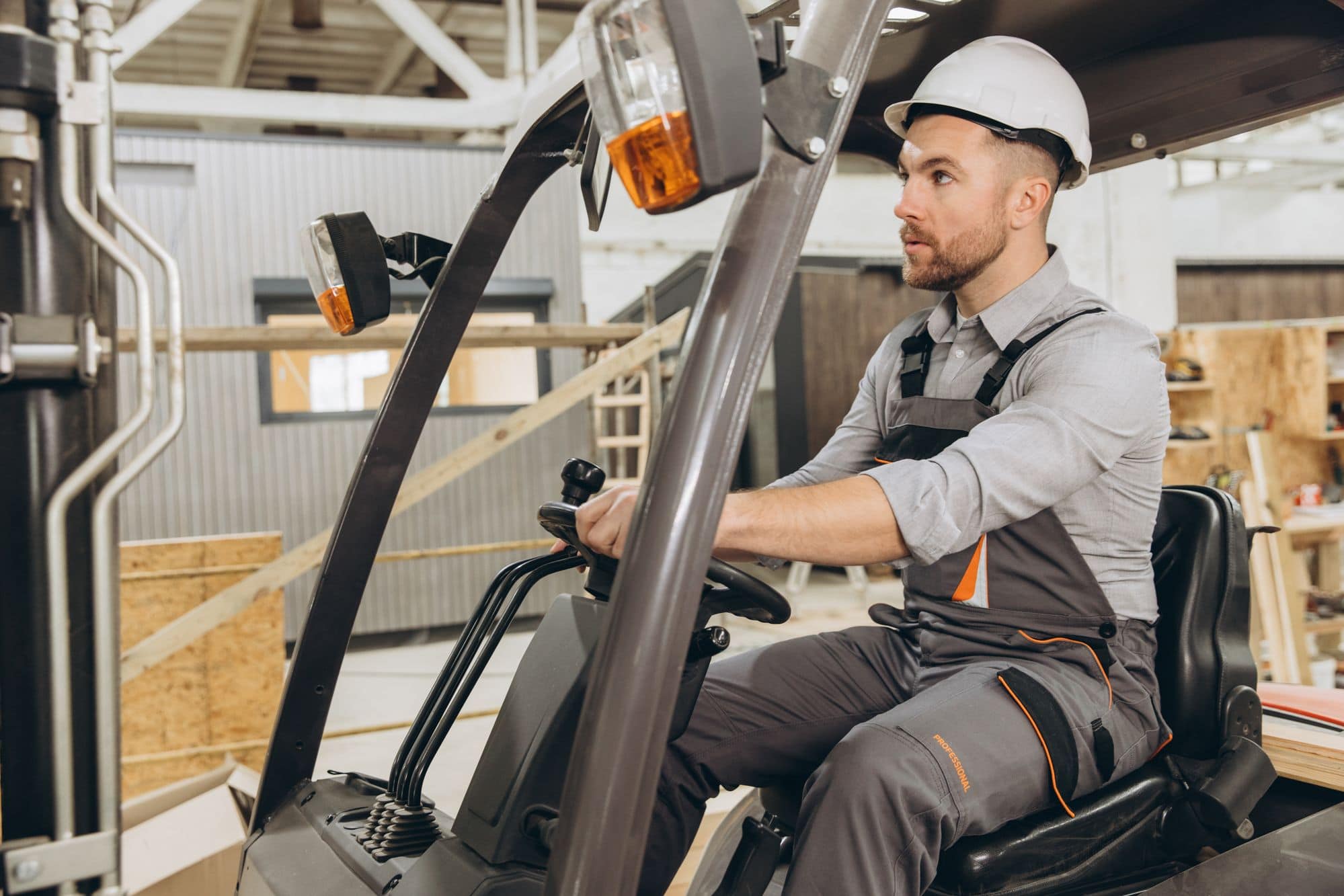
Ready to get started?
Professional machinery moving in Center White Creek means comprehensive service that goes far beyond just hauling equipment from point A to point B. You get detailed route planning that accounts for local road conditions, permit acquisition when required, and access to the specialized trailers and rigging equipment needed to handle everything from compact construction machinery to oversized industrial equipment.
Center White Creek’s location in Washington County presents unique transport challenges that require local expertise. Rural roads that handle regular traffic fine can become problematic with heavy loads. Seasonal conditions affect route selection – what works in summer may be impossible in mud season. Bridge weight limits, overhead clearances, and narrow passages all factor into safe equipment transport.
Our deep knowledge of the area means your machinery takes the safest, most efficient route possible. We know which roads handle heavy loads best, when timing matters most for avoiding traffic or weather issues, and how to coordinate with local authorities when oversized loads require special handling. Whether you’re moving construction equipment to a new job site, relocating manufacturing machinery between facilities, or transporting specialized equipment for commercial projects, you get service that covers every detail from initial planning to final positioning and setup verification.
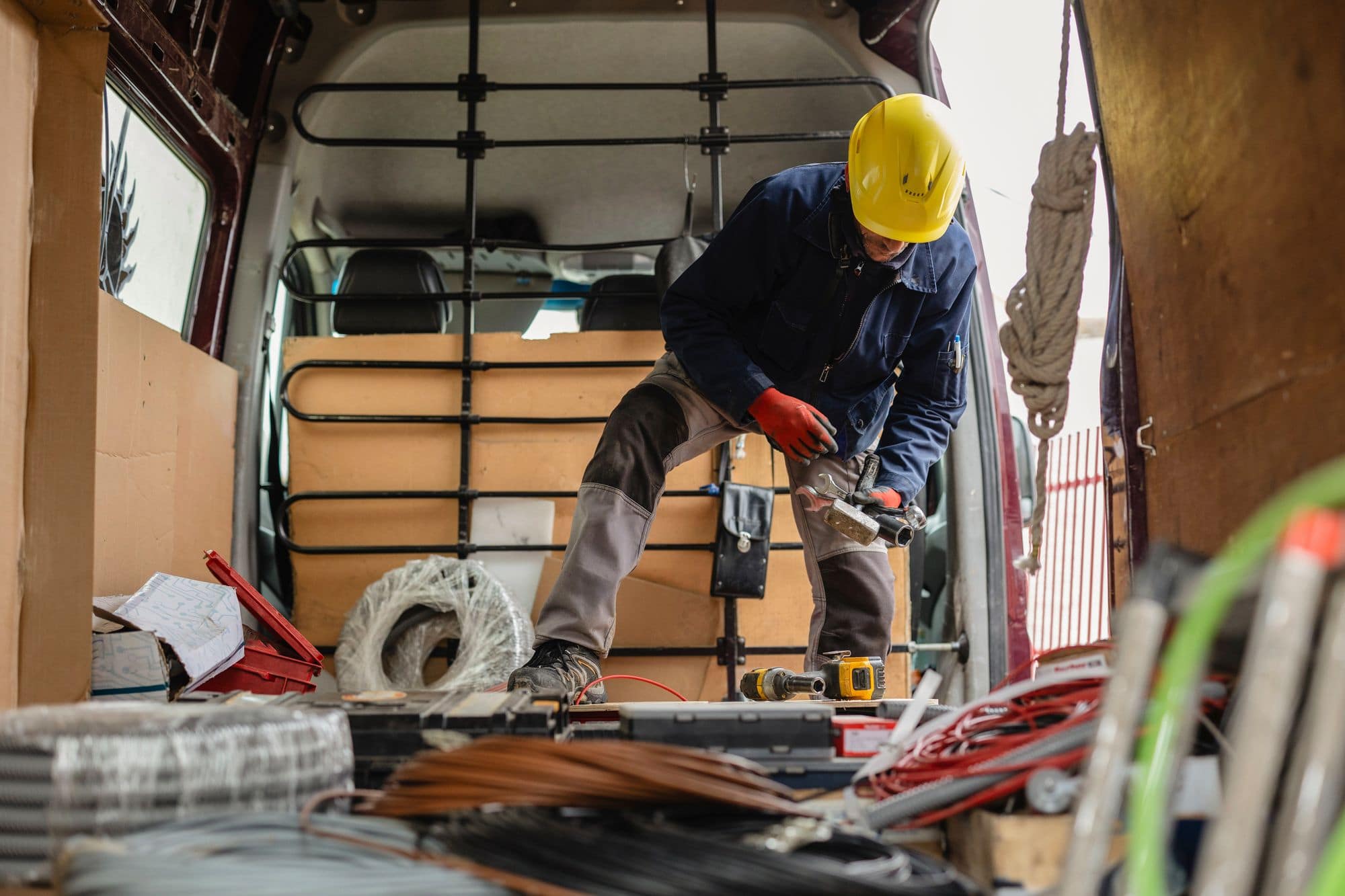
We handle comprehensive heavy machinery transport including construction equipment like excavators, bulldozers, and cranes, manufacturing machinery such as CNC equipment and industrial presses, agricultural equipment including tractors and harvesters, and specialized industrial machinery for various applications. From compact skid steers weighing a few thousand pounds to massive industrial equipment weighing tens of thousands of pounds, we have the experience and specialized equipment to move it safely.
The key to successful equipment transport is proper planning and using the right moving equipment for each specific job. Josh evaluates every piece of machinery individually to determine the optimal transport method, whether that requires specialized lowboy trailers, rigging equipment for awkward loads, or coordinated multi-piece moves for equipment that needs disassembly. Years of experience moving equipment throughout Washington County means we understand the unique requirements of different machinery types and how to handle each safely.
Professional machinery movers also coordinate timing with your project schedule, ensuring your equipment arrives exactly when you need it, not too early to create storage issues or too late to delay your project.
Equipment safety during transport starts with proper securing techniques and continues with route planning specifically designed for Center White Creek’s rural road conditions. Every piece of machinery gets secured using appropriate professional-grade tie-downs, blocking materials, and protective coverings based on its specific weight distribution, dimensions, center of gravity, and sensitivity to movement or weather exposure.
Route selection considers multiple factors that affect equipment safety in rural Washington County – bridge weight limits that vary by season, road width restrictions that affect trailer selection, overhead clearances including power lines and tree branches, and seasonal conditions like mud season or winter weather that can make certain routes hazardous for heavy loads.
Josh’s local knowledge, gained through decades of operating in this area, helps avoid known problem spots and ensures your equipment takes the safest possible path to its destination. This includes understanding which roads handle heavy equipment best, when weather conditions affect transport safety, and how to coordinate with local authorities for oversized loads. Professional insurance coverage protects your investment throughout the entire transport process, providing additional peace of mind that your valuable equipment is protected against unexpected issues.
New York State requires oversize and overweight permits for equipment exceeding standard highway limits – typically loads over 8.5 feet wide, 13.5 feet high, 80,000 pounds gross weight, or exceeding length restrictions. The specific permits required depend on your equipment’s exact dimensions, total transport weight including trailer, and the planned route through Washington County and any other jurisdictions.
We handle all permit applications and ensure complete regulatory compliance before any transport begins. This includes coordinating with the New York State Department of Transportation for state permits, local municipalities for any local restrictions, and utility companies when overhead clearance issues require coordination. Some routes may require escort vehicles or specific travel time restrictions that affect scheduling.
The permit application process typically takes several business days to complete, which is why planning ahead is essential for keeping your project on schedule. Josh works with you early in the planning process to identify all permit requirements, submit applications promptly, and coordinate any special requirements like escort vehicles or restricted travel times. This proactive approach prevents delays and ensures your equipment move complies with all applicable regulations.
Heavy equipment transport costs vary based on multiple factors including your machinery’s size, weight, and complexity, the total transport distance, route difficulty through Washington County’s rural roads, and any special handling or permit requirements. Local moves within Center White Creek and the immediate area typically cost significantly less than long-distance transport to other regions or states.
Additional cost factors include permit fees for oversized loads, escort vehicle requirements for extremely large equipment, specialized rigging equipment for awkward or delicate machinery, and timing considerations – emergency or rush moves typically involve premium pricing while planned moves scheduled well in advance often offer better value. Weather conditions can also affect costs if special precautions or timing adjustments are needed.
Josh provides detailed written estimates that clearly break down all anticipated costs upfront, including base transport fees, permit costs, any special equipment rental, and potential additional charges. This transparency allows you to plan your budget accurately without worrying about surprise charges or hidden fees appearing later. The estimate process also includes discussing timing options that might affect pricing and identifying any potential cost-saving approaches for your specific situation.
For optimal results and pricing, schedule your heavy equipment move at least two to three weeks in advance whenever possible. This advance scheduling allows adequate time for thorough route planning, permit acquisition if required, coordination with your project timeline, and ensuring the right specialized equipment is available for your specific machinery transport needs.
Complex moves involving oversized equipment, multiple pieces of machinery, challenging routes through rural areas, or coordination with other contractors may require additional planning time. Equipment requiring disassembly, special rigging, or moves during challenging weather seasons may need even more advance scheduling to ensure everything is handled properly.
Emergency equipment moves can often be accommodated when absolutely necessary, but advance scheduling provides several advantages: better equipment availability, more competitive pricing, thorough planning time that reduces risk of problems, and better coordination with your overall project schedule. Josh works closely with your timeline to minimize project disruption and ensure your equipment arrives exactly when you need it, whether that’s coordinated with other contractors, building schedules, or operational requirements.
Yes, we provide professional heavy equipment transport throughout Washington County and surrounding areas in eastern New York, including Albany County, Rensselaer County, and parts of Vermont when needed for customer projects. Our service area extends throughout the Capital District region, covering both rural and urban areas with the same attention to safety and professionalism.
Long-distance equipment moves can be coordinated for customers who need machinery transported to or from Center White Creek to other states or regions. These extended moves require additional planning and coordination but can be handled through our network of professional transport partners when needed. The key is proper planning and coordination to ensure your equipment reaches its destination safely, on schedule, and ready to work.
Josh evaluates each transport request individually to determine the best approach for your specific needs, whether that involves local transport within the immediate region, regional moves throughout eastern New York, or longer-distance coordination with specialized carriers for nationwide moves. Distance doesn’t change our commitment to safety and professional service – your equipment receives the same careful attention whether it’s moving across town or across the country.
Other Services we provide in Center White Creek